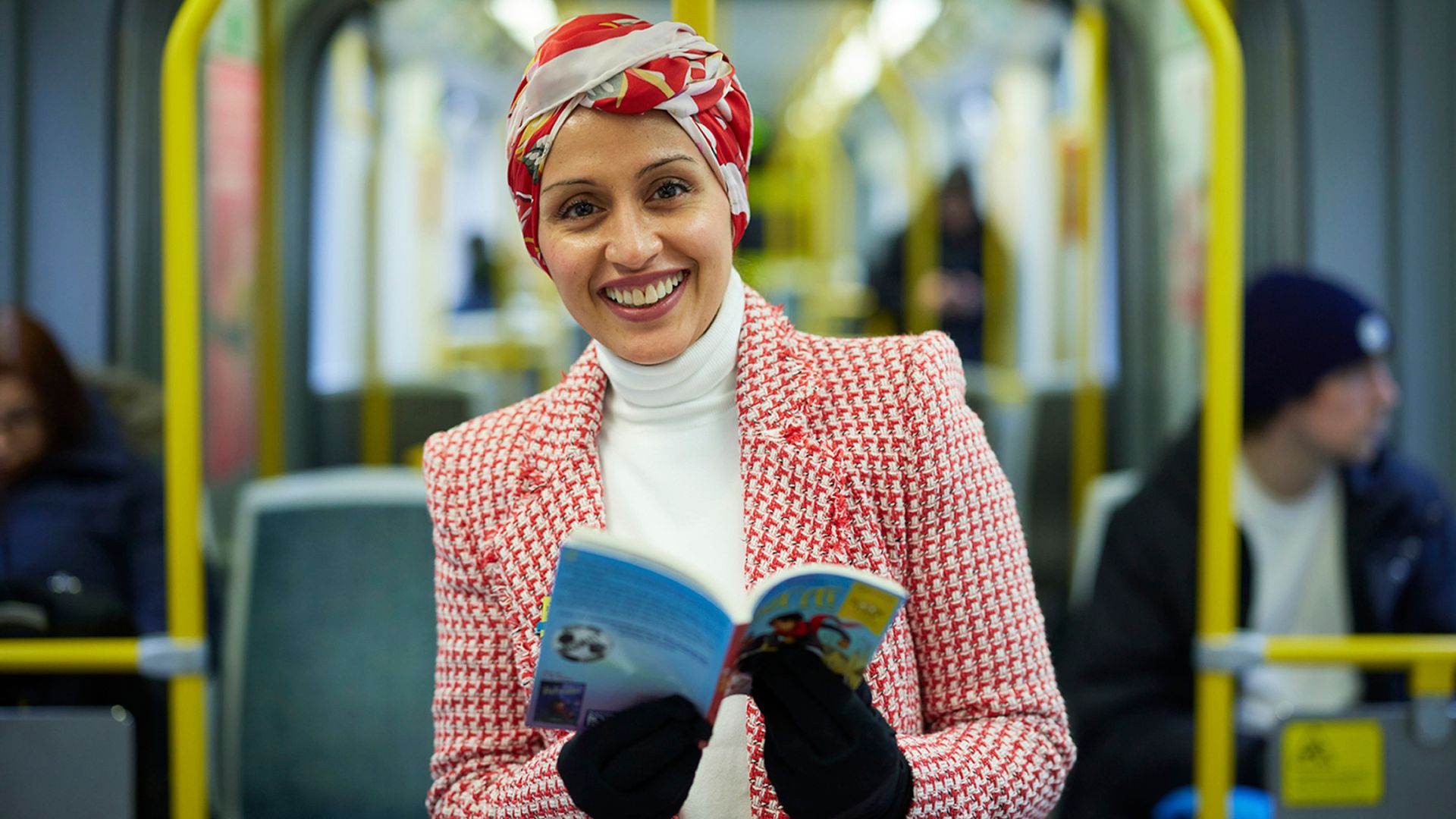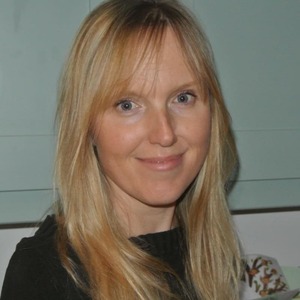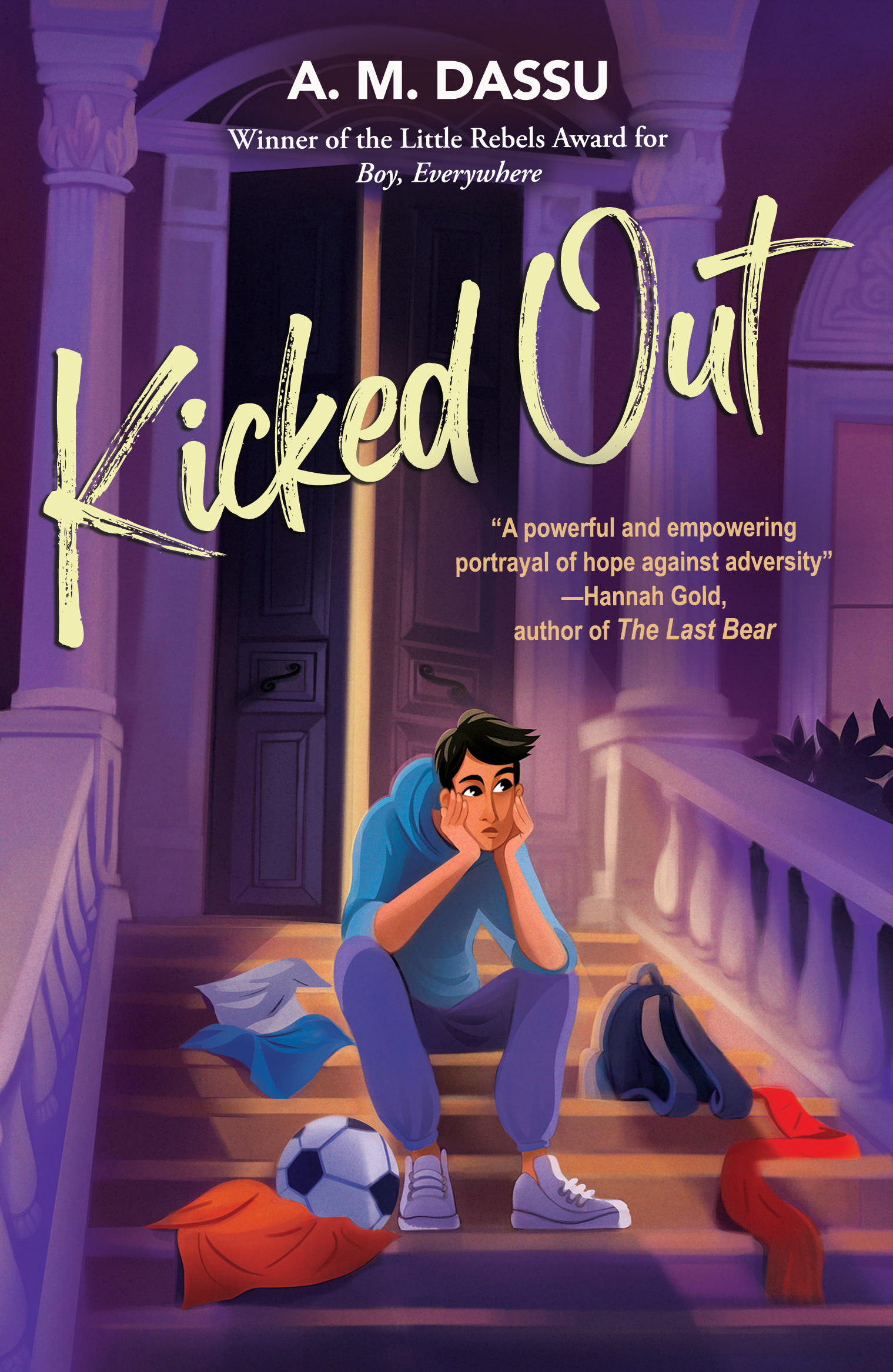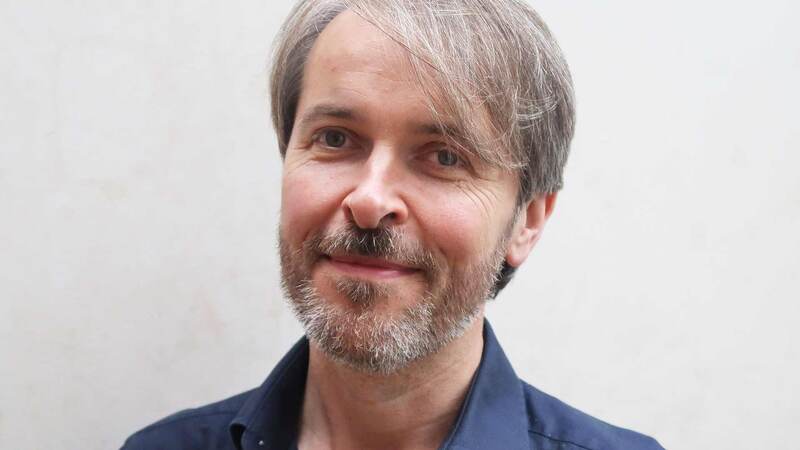You are viewing your 1 free article this month. Login to read more articles.
A M Dassu discusses her sequel to Boy, Everywhere, hope and self-worth
A M Dassu‘s sequel to Boy, Everywhere is a tale of hope and positivity to which kids everywhere will relate.
"I had no intention at all of writing a sequel to Boy, Everywhere,” laughs Az Dassu (who writes as A M Dassu) speaking to me over video call from her Midlands home. “I found it so challenging I actually said I would never go there again.” Boy, Everywhere follows the story of Sami, a Syrian boy forced to leave his home in Damascus and make the difficult journey to the UK. When the book was published during lockdown in 2020, Dassu hoped “it might get into a few schools”, but the response, she recalls, was unprecedented. Multiple rave reviews appeared along with numerous award listings and strong sales through both the trade and schools. She was inundated with readers asking what happened next to the characters and has finally relented.
Kicked Out will be published by Old Barn Books in October. This time the story is told from the perspective of Ali, the UK-born South Asian boy who befriends Sami. “He just spoke to me,” she remembers, “and it was visceral. This time I didn’t just want to highlight societal issues, I wanted it to be much more personal and inward looking.” What challenges would Sami and his Syrian friend Aadam, an unaccompanied minor, face in this new country? “I didn’t want to give that false narrative that everything was fine once they arrived here. Even though it’s been eight years since I first started writing Boy, Everywhere, the rhetoric around refugees is even more divisive and dangerous.”
Kicked Out opens with the boys playing football for the school team and living the dream at their friend Mark’s luxury new house. When money goes missing, racism rears its ugly head and Aadam is falsely accused of theft. The book follows Ali and Sami’s quest to clear Aadam’s name and fight his threatened deportation. “I wanted to show that integration and adapting to a new life isn’t as easy as we might think,” Dassu explains, “and for there to be judgement and threat from someone much closer to home”.
I wanted readers to know that whatever happens within a family, it doesn’t reflect your worth. No matter how imperfect things might be, it can still turn out OK
Ali also has more personal challenges to deal with. His estranged father is back in his neighbourhood and his half-brother has joined his school. “In my previous books my characters have faced enormous challenges but they have always had a supportive family, with both parents present. I wanted to explore finding your place in the world when your family set up might not be traditional.” Like Ali, Dassu grew up with an absent father and she highlights how this is still seldom represented in children’s books, especially in those depicting South Asian families. As Ali struggles to navigate his emotions, he begins to question his self-worth. “I wanted readers to know that whatever happens within a family, it doesn’t reflect your worth. No matter how imperfect things might be, it can still turn out OK.”
Deep roots
Dassu grew up in the Midlands. She loved reading and writing from a young age, picking out Mildred D Taylor’s Roll Of Thunder, Hear My Cry as a pivotal book “which showed me how voice can be so powerful and how stories that highlight injustice can be life-changing”. A career in books, however, felt out of reach. “It didn’t feel like publishing was for me,” she remembers. She studied economics, working in marketing and project management before pursuing a literary career after the birth of her children. A news report about refugees sparked the idea that would become Boy, Everywhere.
I want my readers to feel empathy. I want them to feel empowered and equipped to navigate their lives
“They were talking about what they’d left behind. It was like a lightbulb moment, the idea that this could happen to any of us. I had an overwhelming sense of wanting to correct the narrative and challenge the stereotypes. I wanted something completely relatable, where kids in the West, in the US and UK, would see themselves in Sami and think, oh my goodness, that could be me.” Writing the book and getting it published took a number of years. “I can’t believe the sheer determination that I had,” she recalls. Despite the challenges of three small children, she invested time and energy in writing courses, critique groups, mentoring and networking, eventually securing an agent and a deal with micro-publisher Old Barn Books.
Teamwork
She praises the collaborative nature of a small press, working with Old Barn’s publisher Ruth Huddleston, and freelance editor Emma Roberts and freelance publicist Liz Scott. “There’s a lot of care, I feel that I’m part of a team.”
Dassu’s books are aimed at upper middle-grade readers, aged from 10 to 14. It is, she says, “a pivotal moment in your life. You’re trying to grow up, to fit in… it’s a time that can really shape the choices that you make and your understanding of your place in the world”. She is passionate about the importance of tackling big themes for this age group: “I don’t shy away. I make my books very challenging, very realistic.” Children, she believes, are aware of everything, what they see on the news and social media, what they might be exposed to at home. “I want my readers to feel empathy. I want them to feel empowered and equipped to navigate their lives, to look at these characters who go through so much, but to know there is always hope, there’s always a way out.”
Dassu has an enviable knack for relatable, authentic characters which helps to lighten the emotional load; the power of friendship is always key and a thread of humour and hope runs through her writing. “You need a breather, as a reader, from the heaviness. And life isn’t all drab. There are pockets of humour and laughter, and I am mindful of that balance. To see kids resonate with these characters and really feel for them has been incredible. Out of everything that has happened, that feels like the epitome of my career.”











